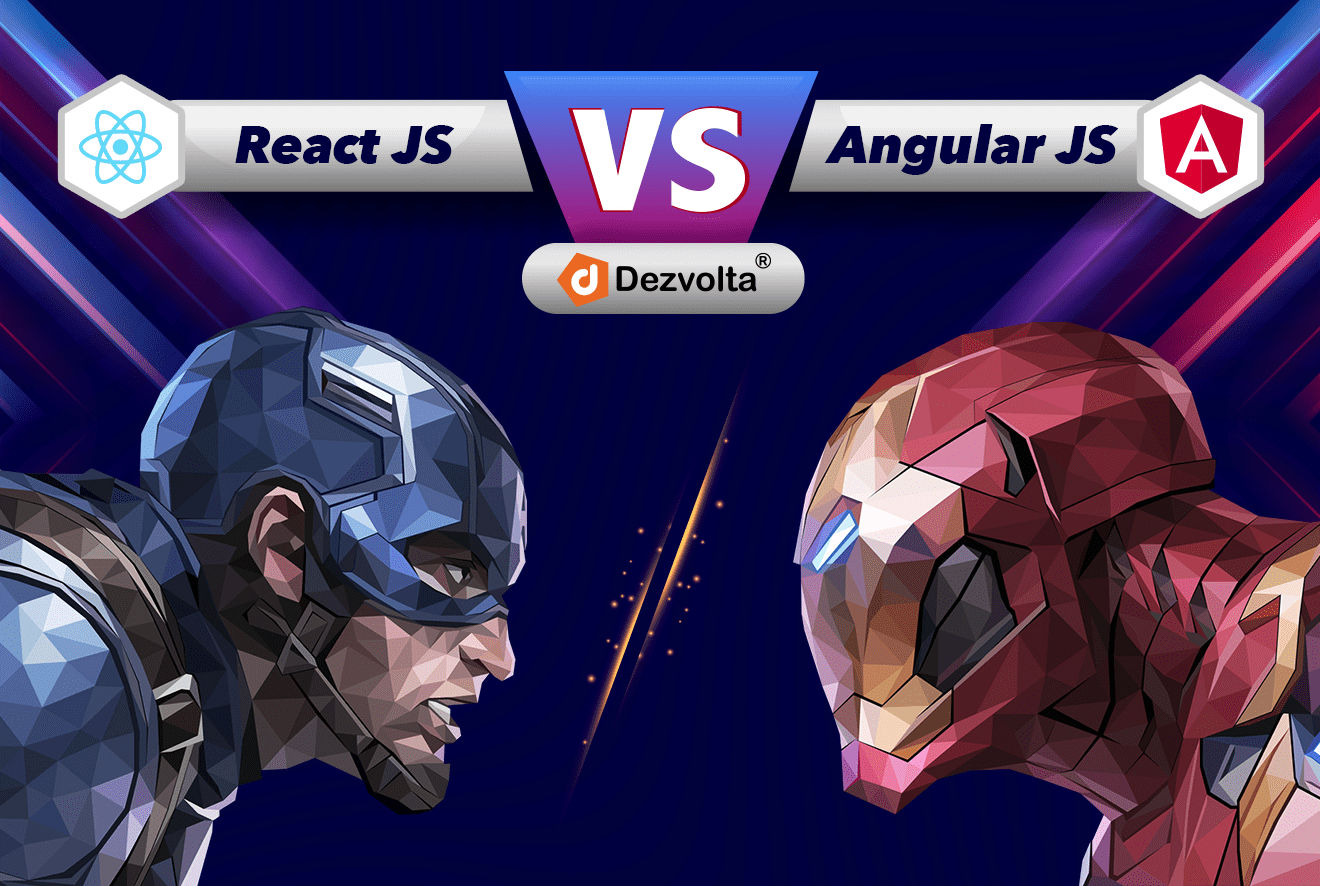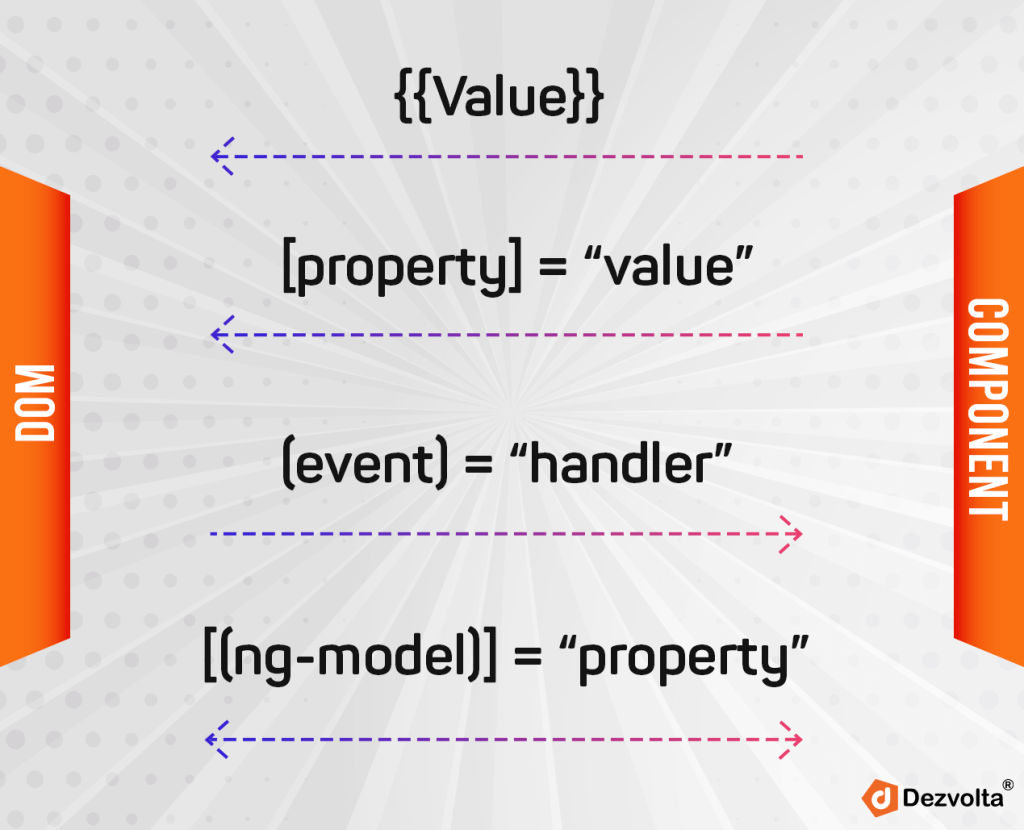
ReactJS vs AngularJS what to choose for frontend development? ReactJS is a library & AngularJs is a framework. Both are used to develop robust applications. Based on the requirement we have to choose the right frontend framework. Let’s discuss it in detail to help you choose the best frontend framework.
- Overview: ReactJs vs AngularJS
- History: ReactJs vs AngularJS
- Self Sustenance: ReactJs vs AngularJS
- Learning & Docs: ReactJs vs AngularJS
- Performance: ReactJs vs AngularJS
- Material UI Components: ReactJs vs AngularJS
- State Management: ReactJs vs AngularJS
- Dependency Injection: ReactJs vs AngularJS
- Data Binding: ReactJs vs AngularJS
- Rendering: ReactJs vs AngularJS
- Benefits: ReactJs vs AngularJS
- Popular Websites using ReactJs & AngularJS
- When to use ReactJs
- When to use AngularJS
- Winner of ReactJs vs AngularJS
- FAQ’s: ReactJs Vs AngularJS
Lets, dive-in.
Overview ReactJS vs AngularJS:
ReactJS:
- ReactJS is a declarative, efficient and flexible JavaScript Library for building user interfaces. It is an open source and Front End Library. It follows the component based approach, means everything in the website page is component based
- ReactJS can be used as a base to develop the single page web application or mobile application
AngularJS:
- Angular is a complete front-end framework to develop the single page and mobile application. It is a TypeScript based open-source framework.
- Angular (Angular 2+) are completely re-written from AngularJS.
- It follows the component, directives based approach
History ReactJS vs AngularJS:
ReactJS:
- ReactJS was developed by Jordan Walke, who got inspired by XHP, a PHP library.
- Facebook started using it in their newsfeed in 2011, instagram used the same in 2012
- Facebook announced the React Native which used to build Native Android,IOS apps in 2015.
- In 2017, Facebook announced React Fiber which is the core changes of React library. The same core algorithm will be used for future release and developments of React library.
- In September 2017, React v16.0 was released.
- In 2019, React hooks are introduced with v16.8.
- React v17.0 was released to the public in October 2020.
AngularJS:
- Angular, commonly referred to Angular 2+ versions and it developed by the Team at Google, who developed the AngularJS(referred as Angular 1 version).
- Angular v2.0 was released to the public in 2016, which has the drastic changes with AngularJS that created the controversy among developers.
| Version | Released Date |
| Angular 2 | Sep 2016 |
| Angular 4 | Mar 2017 |
| Angular 5 | Nov 2017 |
| Angular 6 | May 2018 |
| Angular 7 | Oct 2018 |
| Angular 8 | May 2019 |
| Angular 9 | Feb 2020 |
| Angular 10 | Jun 2020 |
| Angular 11 | Nov 2020 |
Self-Sustenance ReactJS vs AngularJS:
ReactJS:
- ReactJS is a JavaScript Library and it’s not a complete framework for Front-End development. React developers should use additional libraries.
- To achieve the data-binding, component-based routing, dependency injection and many more, they should consider the libraries or modules like Redux, React Router and more.
AngularJS:
- AngularJS is a full packed framework for Front End development, which usually does not require additional libraries. Add on services/functionalities can be provided by additional libraries.
- To achieve the data-binding, component-based routing, dependency injection, and many more, it doesn’t require any additional libraries.
Learning & Documentation ReactJS vs AngularJS:
ReactJS:
- ReactJS is very easy to learn. Developers don’t need to spend a ton of time re-learning the programming language. React is built on what developers already know– JavaScript.
- Thanks to its simple design, use of JSX (an HTML-like-syntax), and highly detailed documentation, React is the best library that makes web development easier to implement and iterate.
- Here is the Official Documentation
AngularJS:
- AngularJS has a steeper learning curve. Angular is a complex and verbose framework with many ways to solve a single problem. It has intricate component management that requires many repetitive actions.
- The engineers have to adapt to these changes.
- Challenge: Angular 2+ uses TypeScript & RxJS. Using TypeScript with JavaScript, it will take time to learn. RxJS requires much effort to wrap a mind around.
- Here is the Official Documentation
Performance ReactJS vs AngularJS:
ReactJS:
- ReactJS uses virtual DOM to get its high performance.
- Since all virtual DOM trees are lightweight and built on a server, the load on the browser is reduced.
- Since the data-binding process is unidirectional, bindings are not assigned watchers as in the case of Angular. Respectively, no additional workload is created.
AngularJS:
- The performance of Angular apps is negatively affected by bidirectional data-binding. Each binding is assigned a watcher to track changes, and each loop continues until all the watchers and associated values are checked. Because of this, the more bindings you have, the more watchers are created, and the more cumbersome the process becomes.
- However, the most recent update of Angular has greatly improved its performance, and it does not lose to React anymore. Moreover, the size of an Angular application is slightly smaller than the size of a React app.
Material UI Components ReactJS vs AngularJS:
ReactJS:
- There are many free and paid UI components available on the ReactJS portal.
- We have to install the explicit Material UI package of React to use the material design components. Because of this , UI configuration becomes clumsier
AngularJS:
- Angular has a built-in Material toolset, and it offers a variety of pre-built material design components.
- There are various buttons, layouts, indicators, pop-ups, and form controls. Because of this, UI configuration becomes simpler and faster.
State Management ReactJS vs AngularJS:
ReactJS:
- Developers can create separate components to manage the state for the entire application or particular components. The problem here is that state data needs to be stored in different parts of components by passing manually with component tree levels.
- To solve this problem, Redux is a special state management library and there are many more libraries available like Flux, MobX,… The idea of it is that the global state is represented as a single stateful object, which is altered in different parts of the app with the help of reducers(special Redux functions).
AngularJS:
- State management is handled through component’s interaction via input bindings and output event emitters.
- When we have a larger app, it can cause multi-directional tree series of updates, which will be problematic to track and debug.
- To overcome these difficulties, we do have NgRx or RxJS, which make sure the unidirectional data flow.
Dependency Injection ReactJS vs AngularJS:
ReactJS:
- ReactJs doesn’t offer the dependency injection like the other Frameworks in the market. But React has a dependency injection system built in JSX.
AngularJS:
- Unlike React, the greatest advantage of Angular is having a dependency injection container. Like below,
import { Injectable } from '@angular/core';
import { HttpClient } from '@angular/common/http';
@Injectable({
providedIn: 'root' this service should be created by the root app injector.
})
export class HttpService {
constructor(private http: HttpClient) {}
}Data Binding ReactJS vs AngularJS:
ReactJS:
- Supports unidirectional data flow, which helps to improve the performance.
- React should be augmented with Redux, which allows you to work with immutable data and makes data flow unidirectional.
- Unidirectional binding is predictable, which facilitates the debugging process.
- There are the two-way data bindings helpers available
import LinkedStateMixin from 'react-addons-linked-state-mixin'; // ES6AngularJS:
- Angular works with two-way data binding and mutable data.
- It is easier to work with two-way data binding rather than unidirectional data binding in the case of data flow.
- But this bidirectional concept impacts the Performance since Angular automatically creates the watcher for each binding.
- Different forms of Data Binding,
- Interpolation
- Property Binding
- Event Binding
- Two-way Binding

Rendering ReactJS vs AngularJS:
ReactJS:
- React uses a virtual Document Object Model (DOM), which enables easily implementing minor data changes in one element without updating the structure of the entire tree/page.
- The framework creates an in-memory cache of data structure, computes the changes, and efficiently updates the DOM displayed in the browser. This renders the changed subcomponents/components only.
AngularJS:
- Angular uses a real DOM structure, which updates the entire tree even a single element/subcomponent changes occurred.
- To overcome this disadvantage, Angular uses change detection to identify components that need to be altered. Therefore, the real DOM on Angular performs as effectively as the virtual DOM on React.
Benefits ReactJS vs AngularJS:
ReactJS:
- Better User experience
- Code-stability with unidirectional data flow.
- Quick development.
- Faster testing
- Timing saving in development process
AngularJS:
- Material Design like Interface
- Better error handling
- Seamless updates using Angular CLI
- Higher Performance
- Cleaner Code
Tech Giants Using ReactJS and AngularJS:

When to choose ReactJs?
- Your team has expertise in HTML, CSS and JavaScript.
- If your team knows the state management with Redux
- If your app is complex in nature, then choosing React helps in good performance.
- You need a highly customized specific app solution.
- If high speed is the main concern, then choosing React helps
- Components are expected to be shared across multiple applications as the app project expands.
- You wish to spend time on pre-development preparation.
When to choose AngularJS?
- App complexity lies between low and medium level. High complex apps can be developed, but performance issues can occur due to the more workers required.
- If you embrace the ready to use solution, then prefer Angular. It comes with bundle of all solutions together includes material design
- If you need a complete framework for Front End development in one place, then it’s a right choice
- Advantages of Two-way data binding. Most of the applications require this feature. React doesn’t support this directly.
- Constant and regular improvements by community. Thanks to Google
Winner of React vs AngularJS:
ReactJS seems simpler and faster at first sight. And it takes less time to start working on React since it’s just a library not a framework. It’s good with its simplicity.
Angular is a full-fledged framework. Angular itself is more complex and it takes time to become a master of it. Yes, it’s a powerful tool which has vast web development experience.
Both have their own advantages and disadvantages. They are updated continuously to keep up the competition. And more importantly backed by the two Tech Giants Facebook and Google. In the end, React vs Angular is all about the preference and the matter of skills and expertise.
Top 5 Frequently asked questions:
There are many differences between them. For example, React is a library, angular is a full fledged framework. React uses virtual DOM, angular uses real DOM.
React has more searches and more solutions on stack overflow. Angular is highly considerable because of its readily available solutions. Tough to choose the popular among them.
Due to its simplicity, React is easier to learn.
React uses Virtual DOM to update its elements. It’s quite faster than Angular, which uses a real DOM.
There are many questions around if Angular is losing its popularity, if it’s still dying and all?. But the fact is Angular is still relevant and preferred by the developers. In fact, after Angular 8+, due to its outstanding efficiency and performance it is considered as the best web development framework.
Have an Interesting Project in mind?
Dezvolta is a full stack agency offering premium UI/UX design, development and Digital marketing solutions to brands across the globe. We can’t wait to hear from you.

